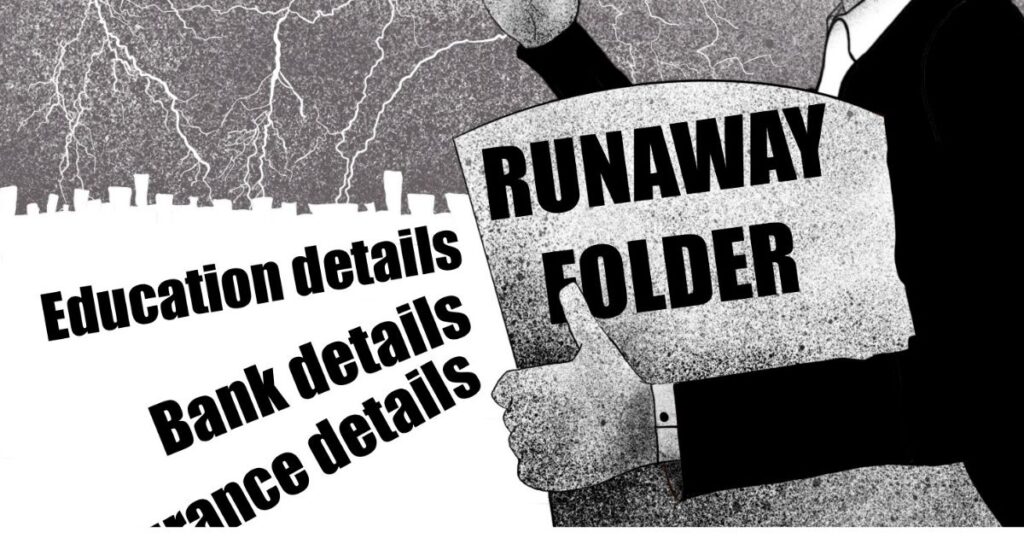Introduction:
Welcome to the financial frontier of 2024, where strategic navigation is paramount for senior executives and professionals in the ever-evolving landscape of the Indian investment market. In this guide, we embark on a journey to illuminate the financial blind spots that could impact your personal finance journey. With my three decades of learning from my client’s mistakes, Join me as we explore these pitfalls and equip ourselves with the knowledge to navigate the complexities of personal finance in the coming year. As we stand on the precipice of 2024, India’s dynamic investment landscape buzzes with opportunities and challenges.
As we step into 2024, we must carefully chart our financial course, steering clear of common mistakes, that can impact your personal finance journey. Learn to avoid the nine personal finance mistakes that could significantly affect your financial well-being.
This blog is for senior executives, ambitious entrepreneurs, and seasoned business people who wish to navigate this terrain with better foresight and agility.
While the blog shall emphasise the personal finance mistakes, yet, the most astute investors can stumble upon hidden pitfalls – financial blind spots that can compromise long-term personal finance goals. This blog is written for navigating personal financial success and to make it a guide for India’s savvy investors. This guide sheds light on nine critical personal finance mistakes to avoid in 2024, empowering readers to optimise their strategies and secure a future reflecting their ambitious vision.
1. Not budgeting:
The most common mistake I have noticed is for a family to have no budgeting for their monthly expenses. Knowing which direction to go and how long it will take can lead to correct decisions. Avoid these mistakes:

a. If you do not have a template, make a monthly expense estimate. I recommend dividing it into 5 categories: Household Expenses, Lifestyle Expenses, Dependent Expenses, Insurance Premiums, and Loan Servicing.
b. Action: Download this free Excel template and make your budget easily. This exercise will help you to make an exact budget, and that helps your brain remember it well. This budget is only the expenses and not the investments to be made. This part of all these expenses is within 50% to 70% of your monthly expenses. Do pay attention to this common personal finance mistake! Share your thoughts about your experiences in the comments below.
2. Not making any investments every month:
After the above calculations in point 1, if you are saving some amount in your savings bank account, don’t make the following mistakes.

a. Remember inflation: Your above savings bank is perhaps getting you only 2-3 % returns. If you invest in an FD, you get returns near the current inflation rate of 5-6 %.
b. Hence, you must plan to invest in something better than FD to beat inflation (currently 6 %). Let us say you invest in equity mutual funds to plan to get around 12 % ( which is just 6% inflation and 6% growth rate in India currently). You do not need to be an expert to understand but can easily invest in a good mutual fund to get 12-13 % returns over a long period. (do check out my videos on my YouTube channel for more information. Personal finance mistake #2 can be proactively avoided. Do share your thoughts about your experiences in the comments below.
c. Chasing Fads, Ignoring Fundamentals: The allure of quick profits can be enticing, but jumping on investment bandwagons without due diligence can be hazardous. Disciplined, research-backed decisions are vital to staying the course.
3. Underestimating the Emergency Fund:
Life throws curveballs, and even the most meticulous plans can encounter unforeseen expenses. A robust emergency fund acts as a safety net, shielding you from financial distress during medical emergencies, job losses, or unexpected repairs. This is not an investment! Pay attention to this personal finance mistake only after making investments.

a. As a rule of thumb, aim for an emergency fund that covers at least 6 to 12 months of living expenses, and review it periodically to adjust based on your evolving needs.
b. Keep this money in an FD or some debt fund linked to your emergency fund.
c. Where do you prefer to keep your emergency fund? Do share your thoughts in the comments below.
4. Failing to Inflation-Proof Your Investments:
Inflation, the silent thief, can erode your purchasing power over time. Lifestyle inflation is increasing by 5-10%.

i. For the salaried, their companies give this lifestyle -inflation-linked increments or bonuses or raises every year to help you beat this increase in your expected expenses. However, sometimes we take this as an opportunity to buy new gadgets, go for a nice dinner, or take a new vacation. Such expenses make your expenditure budget increase yearly by 5-10%, but your lifestyle inflation increases by 15-20%.
ii. You do not remember to increase your investments! Refrain from making common personal finance mistakes and keep increasing your investments yearly by at least 5-10%.
iii. Regularly review your portfolio composition and adjust allocations to ensure your investments continue to outpace the rising cost of living.
5. Falling Short on Insurance Coverage:
Comprehensive insurance safeguards your assets and income against unforeseen events, providing peace of mind and financial security. Ensure you have adequate health, life, property, and best car insurance to protect yourself and your loved ones from potential misfortunes.

a. Buy adequate health insurance for your family.
Remember, a small premium today can prevent a financial catastrophe on hospitalisation, an accident, or any illness tomorrow. This is an expense that you cannot say no to!
b. Medical expenses are among the biggest expenses you can see in your lifetime, and there is no warning or bargaining! Doctor’s fees or treatments have to be undertaken without waiting.
c. It is seen that even the richest have gone broke while undergoing medical treatments!
d. You would have heard of people undergoing medical treatments without spending anything from their pocket.
e. Another myth or mistake made by the salaried is that their company covers them. Here are such three myths:
Remember you are covered till the day you work in this company; the next day, there is no medical cover.
Check if you have to make some co-payment of 10-15% and with a room per day limit when a claim arises.
Also, the cover may need to be revised for your potentially higher possible medical treatment. You may be covered for just Rs. 5 lakhs, and in today’s average, surgery may cost Rs. 10 lakhs, and this medical insurance inflation is 15%.
f. Remember to buy adequate life insurance to protect your family from financial loss in case of your unforeseen passing away. The primary earner(s) of your family should buy “Term Insurance”. This is the best type of life insurance to buy as it gives your family a lump sum or a steady flow of income. Also, all their goals are met with this decision. Buying term insurance for Rs. 1, 2, or 5 crores from a firm with the best claim settlement ratio and for the least premium. Do pay attention to this common personal finance mistake!
g. Another benefit is to get an income tax deduction for the premium paid by you for life insurance and health insurance under Section 80C and Section 80 D, eventually saving you tax also. Check out my blog for Life insurance and Health insurance.
6. Unnecessary Trap of EMI:
According to a report, 65 % of iPhone buyers take the No-cost EMI

a. This psychology of easy instalments may be dangerous if you cannot buy that good in one go! The convenience and feel-good factor of buying such goods could have been prevented, and the same amount put into a SIP (read my blog) could help you buy such goods later. Do pay attention to this common personal finance mistake!
b. However, it would be a wise move if you have money to buy that (necessary) good today but take the no-interest goods with some additional discount on a credit card.
c. Remember to have that emi for a maximum of 6 months, and take at most one such emi purchase. These emi continue for a 10-20 year period.
e. Impulsive buying trap: Some Social media make you consider buying some items by force. Do not make this personal finance mistake!
f. Whenever your friend buy some item like a mobile phone, decoration, or some convenience idea makes you also buy the same. Avoid these kinds of impulsive buying.
g. Make it a habit to avoid trying and purchasing online and wait some time to evaluate if you can do without it.
h. Because of 3 years of COVID-19 times and working from home have made many people buy such items and they make themselves happier! Avoid such costly mistakes.
7. Having only one source of income:
Today, having only one source of income can prove to be a bad mistake.

a. If you are salaried, you are happy and satisfied; it may be ok. However, plan to save more so that you have a passive source of income in a few years. Do not make this personal finance mistake!
b. Eventually, plan to have a systematic withdrawal plan equal to your monthly household. Read more on this topic in my other blog. (SWP for your financial support)
c. Create more passive sources of income like blogging, photography, etc.
8. Delaying Retirement Planning:

The golden years should be a time of leisure and well-being, not financial anxiety. Start planning for retirement, taking advantage of employer-sponsored plans, exploring tax-advantaged investment options, and consistently contributing to your retirement corpus. The power of compounding interest is on your side, so starting early allows you to build a comfortable nest egg and enjoy a financially secure retirement. Think of a time when you may not be able to earn money! Think and imagine when you want to live freely without bothering about the source to meet your expenses. Read more on my blog: (SWP, for your financial support). Do not make this personal finance mistake!
9. Not Making Digital Records of Your Investments:
These are some unwanted situations that raise the hood sometimes.

However, you can save yourself from caging yourself in a helpless situation. You can make arrangements for the solution to be made available at the click of a finger. How? Create specific folders on the Cloud by attaching them to Google Drive or emailing them yourself. Besides, you can create separate folders with documents attached in originals and keep them in a safe place.
a. Now, what are those five folders? Download this free book: https://taresh.ck.page/familybook
b. Do make a record of all your buying of your investments. Keep an accessible document tracking folder handy. Download this free book: https://taresh.ck.page/runaway.
c. You did not keep records but helped someone who may need your help when someone passed away by sending them this video.
Bonus: Neglecting Tax Planning is a common mistake for all the above personal finance mistakes.
Tax optimisation is an art form, not a footnote. Remember to integrate tax considerations into your investment strategy; it can unlock significant savings and maximise returns. Also, link such investments to a goal like wealth creation. Be sure to submit your savings information (or salaried information) before your CA. Do more than just start investing in any tax-saving instrument on hearsay. Consult with a tax expert to explore tax-efficient investment options, understand capital gains implications,
and leverage deduction avenues. Remember, a proactive approach to tax planning can be the difference between building wealth and inadvertently enriching the government.
Conclusion:
The blog successfully emphasised each of the personal finance mistakes; common mistakes that the most astute investors stumble upon hidden pitfalls – financial blind spots that could compromise long-term personal finance goals. This blog’s objective to explore all such mistakes and provide an action plan for each of the mistakes is illustrated well. This is bound to help for navigating personal financial success and to make it a guide for India’s savvy investors.
This blog sheds light on practical insights of what is happening and how can one navigate these pitfalls and plan for the next year. By navigating these nine personal finance mistakes, you can chart a course towards financial freedom in 2024 and beyond. Remember, personal finance is not a one-time endeavour but a continuous journey of learning, adaptation, and strategic refinement. Embrace professional guidance, prioritise long-term growth, and stay vigilant against hidden pitfalls. As you do, you will be well-equipped to weather the dynamic Indian market and achieve your financial aspirations.
The author of this article is Taresh Bhatia, a Financial Freedom Specialist, qualified as a CERTIFIED FINANCIAL PLANNER PRO who has authored an Amazon best seller-“The Richness Principles”. He can be reached at taresh@tareshbhatia.com
©️2024: All Rights Reserved. Taresh Bhatia
Subscribe Now for Upcoming Blogs!
📢 Join free live webinar —
Couple Finance Formula™ Register here




